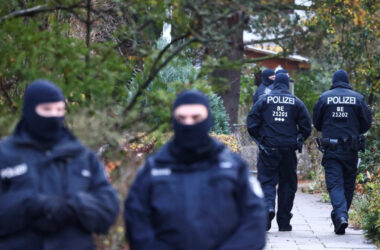Over the past week, leading European media outlets focused on several key issues, including the ongoing conflict in Ukraine, economic challenges stemming from U.S. policy, and internal socio-political tensions within the EU.
Ukraine conflict: EU in search of a unified strategy
The central theme was the European Union’s failure to form a coherent position on supporting Ukraine. According to Le Monde, EU allies are deeply divided—France advocates for increased military involvement, including the potential deployment of ground troops, while the UK emphasizes the protection of Ukraine’s air and maritime space. Germany and several other nations take a more cautious stance, wary of escalating the conflict.
Politico notes a growing “war fatigue” in Western Europe, weakening the EU’s commitment to long-term support for Kyiv. Hungary, which currently holds the EU Council presidency, is using its position to criticize Brussels’ “militarist stance,” fueling tensions among EU leaders. Meanwhile, The New York Times reports Russian military advances on the Kursk front, further pressuring European policymakers.
Economy: Trump’s tariffs and the energy crisis
Another blow for Europe came in the form of U.S. trade tariffs imposed by President Donald Trump. According to the German Economic Institute, the tariffs could cost Germany up to €290 billion by 2028. Handelsblatt highlights ongoing efforts by European countries to mitigate the impact through new trade negotiations.
Bloomberg draws attention to growing energy concerns: Europe faces a gas shortage and is being forced to rethink its energy storage strategy. Switzerland, meanwhile, hesitates to impose countermeasures against the U.S. over fears of rising electricity prices.
Internal instability and social challenges
Domestically, European media reported increasing anxiety over security and migration. In Poland, RMF FM reported the arrest of a Ukrainian criminal gang, which reignited public debate. In France, Le Point emphasized that European leaders feel sidelined in global U.S.-Russia negotiations.
Sabah raised environmental concerns, such as a surge in rodent infestations in major European cities, which has drawn media criticism. The Local and Are We Europe published stories on migrant cultural integration and cross-border community building.
Europe on the global stage: searching for influence
Numerous publications expressed concern over Europe’s declining geopolitical influence. As Corriere della Sera reports, Europe lacks the capacity to confront both Russia and China simultaneously, especially amid increasingly unpredictable U.S. foreign policy. Le Figaro featured critical reader responses toward the U.S., while Foreign Affairs warned that ramping up sanctions against Russia could backfire on Europe’s own economy.
Key trends: division, uncertainty, and doubt
European media coverage reveals a clear polarization of opinion and growing economic pessimism. Liberal outlets such as The Guardian and Le Monde call for stronger support for Kyiv, while conservative and Eastern European media question the EU’s long-term strategy. A growing number of voices—including wPolityce and Junge Welt—accuse Brussels of inefficacy and excessive reliance on the United States.




